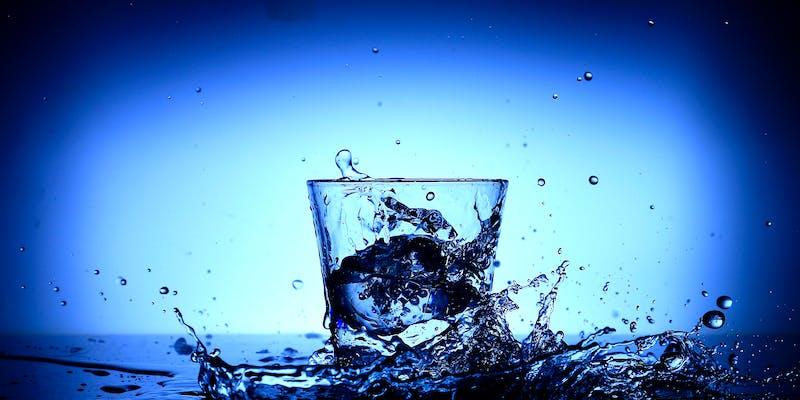Bubbly or Still: The Great Water Debate and Your Health
Feb 03, 2024 By Madison Evans
Many types of water exist, including flavored, mineral, still, and sparkling. Different kinds of water offer different health benefits, so one should select one that suits you. Many people get confused between sparkling and still water. Why? Because both are very commonly used. What makes them different and how they are both consumed depends on the people taking it. We have thoroughly explained both types of water along with their benefits.
Still Water
To put it simply, water without any further carbonation or effervescence is called still water. Most of the water we drink every day is this kind, which is what usually comes out of our faucets at home. Still, water retains its silky smoothness and lack of alterations in texture, in contrast to carbonated water, which is pressurized to produce a bubbly effect. Purified water is essential for hydration and many biological processes. Both still and carbonated water hydrates us. Thus, ice sparkling water may be a delightful alternative for folks who have problems drinking water.
Sparkling Water
Injecting pressurized carbon dioxide gas into water creates sparkling water. The effervescent beverage is called sparkling, fizzy water, bubbling water, water with soda, club soda, or soda water. Except for seltzer water, ice sparkling water often contains salt to increase taste. On occasion, other minerals may be present in minute quantities.
Natural sparkling mineral waters, like San Pellegrino and Perrier, are distinct. These fluids often include sulfur compounds and minerals collected from mineral springs. Carbonation is also a common ingredient. Carbonated water containing quinine, a bitter ingredient, sugar, or corn syrup with a high fructose content is termed tonic water.
Advantages of Still and Sparkling Water
Recalling to drink water daily is important since water is water. Both ice sparkling water and still water offer benefits, but one may be better for you.
Advantages of Still Water
The tremendous health advantages of water should not be shocking to learn. The majority of our bodies are water. Actually, women comprise 55% of water and men 60%, based on data from the US Geological Survey. These data show that drinking adequate water daily is essential for our health. The Mayo Clinic advises men to drink 3.7 liters and women 2.7. In addition, they listed a few other advantages of water consumption:
- Maintains a steady internal temperature
- Provides joint protection and lubrication
- Retains spinal cord and other delicate structures from harm
- Expels harmful substances via the urinary, sweating, and bowel systems.
A wonderful technique to keep our bodies hydrated is to drink still water. One reason our bodies require hydration is to help cells absorb nutrients. Without adequate water, your body won't absorb as many nutrients from meals. Does our body need anything other than water to be hydrated? No. Fruits and vegetables like watermelon and spinach contain all of their weight in water. Beverages such as juices, coffee, and energy drinks often include water as well.
However, doctors warn against relying on sugary beverages as your only source of water since consuming too much sugar may cause dehydration. It is thought that excessively sugary beverages might hasten the process by which water is transferred from cells to urine, preventing the body from adequately absorbing the necessary nutrients.
Adding subtle tastes to still water is a great substitute for sugary drinks. Lime water, juice from lemons, or even calorie-free stevia are three fantastic combinations! Because it is easily accessible, still water is a go-to for many people's health and hydration requirements. Many homes have water faucets that connect to the main supply. Due to bacteria, pollutants, and disinfection byproducts, unfiltered tap water is not always recommended. You might become sick or die if you consume any of them. The location of your residence is the primary factor in this matter.
Many individuals take precautions by purchasing water filters to remove these contaminants and guarantee they are drinking clean water every day. A Brita pitcher, a water filtration system attached to the house's main water line, or even a water-filtering refrigerator may all serve this purpose!
Advantages of Sparkling Water

The topic of ice sparkling water's potential health advantages has sparked several discussions. Fortunately, multiple experts have refuted this myth and established that carbonated water, the main element in fizzy beverages, is harmless. If you want something more flavorful than water, try sparkling water.
However, to avoid compromising dental enamel and sugar intake cut down on your use of carbonated water from well-known brands that include artificial or natural tastes. An easy solution would be to invest in a soda machine and carbonate your own filtered, still water at home. That way, you could control what goes into your water every day. Since carbonation is essentially simply water, it should come as no surprise that sparkling water is equally hydrating as plain water. Because of the pleasant fizzing sensation that sparkling water provides, you may find that you drink more water overall. You may drink sparkling water with confidence knowing that your body is getting the hydration it needs if it does not include a lot of added sugars.
The level of carbonation and ease of access separate sparkling water from still water. Modern supermarkets and pharmacies sell a variety of sparkling water. However, buying seltzer water in bottles or cans every day may be expensive. For almost a decade, soda machines have been a manufacturer-approved, cost-effective solution! With the soda maker, people may generate carbonated water at home. These devices vary in price, but purchasing seltzer water in packs instead of a soda machine will save you a lot. Only CO2 canister refilling is needed for machine maintenance.
Which One Is Best?
The basic answer is carbonation, which is the major difference between still water and sparkling water. In terms of accessibility, hydration levels, and health advantages, however, there are a number of distinctions to be found. Both plain water and sparkling water have their advantages, so it really comes down to personal preference.







